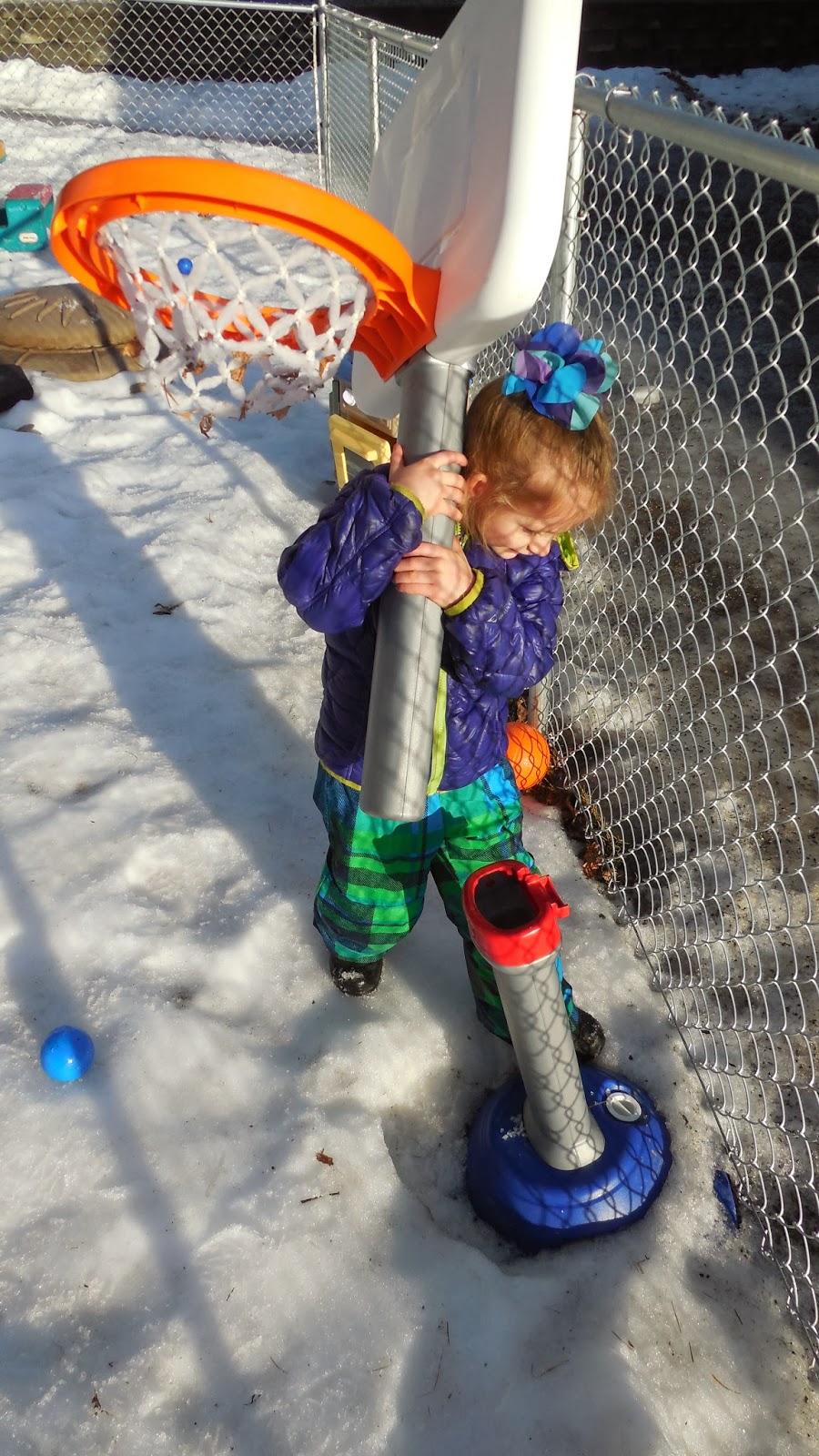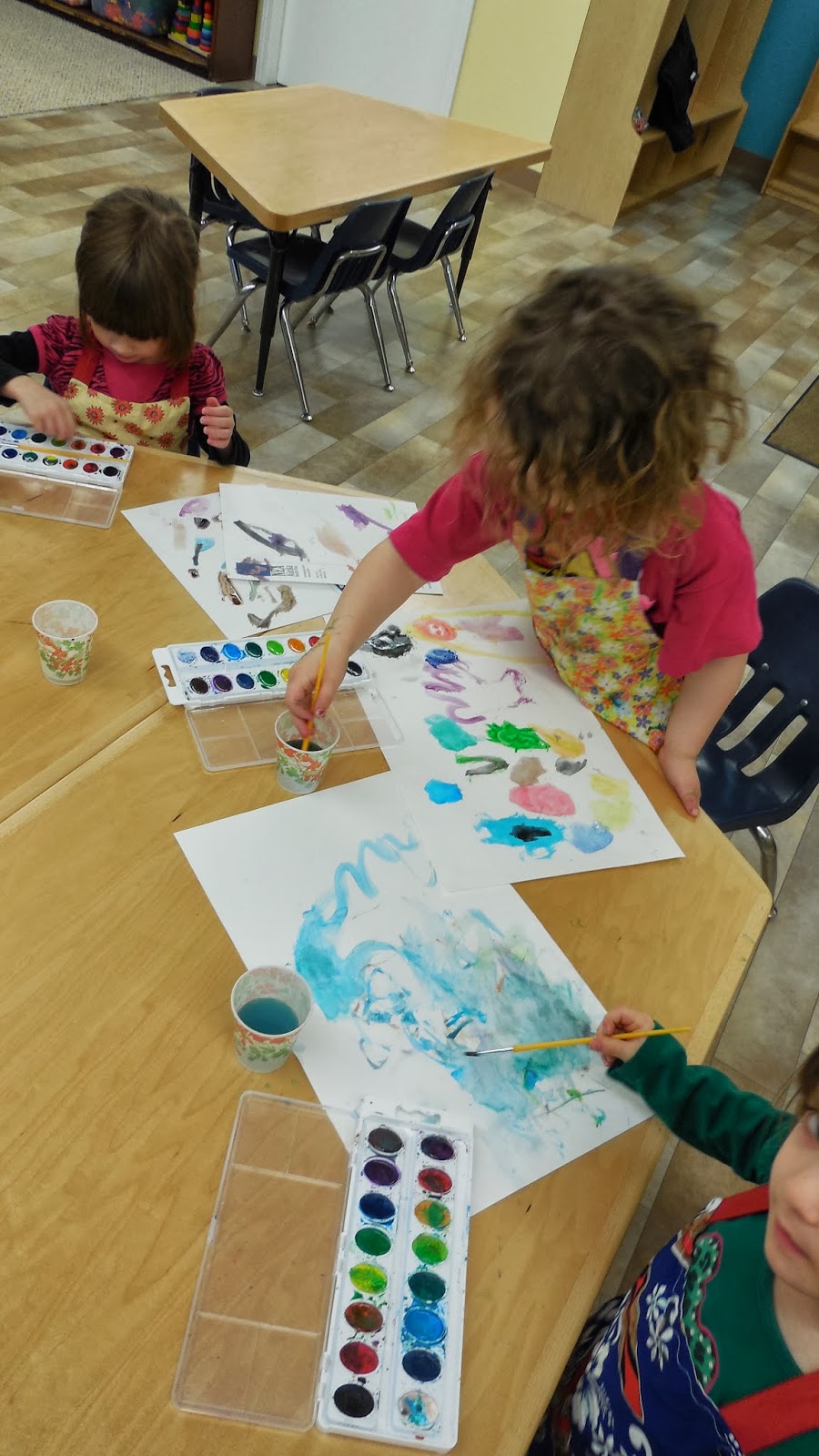February 7 - School Art Fair; 6:30PM
February 15 - Preschool Open House for the community; 10AM-1PM
THIS WEEK’S LITERACY EXPERIENCES
Morning Books
"The Napping House" by Audrey Wood
"Ugly Fish" by Kara LaReau and Scott Magoon
"The Doorbell Rang" by Pat Hutchins
Afternoon Books
"Green" by Laura Vaccaro Seeger
PLANNING & RECALL
Children's ability to recall events from Work Time increases with time. They increasingly become able to add detail to their recall stories, they tell longer stories, and they add to the recall narratives of their friends. This week for planning and recall time, we drew Bananagram tiles from a cup. If their letter name was drawn, it was their turn. This is also a great way to continue to incorporate letter recognition with letters that mean a lot to the children - the first letter in their name.
BIBLE LESSON
God's people continued to live in the land of Egypt for many years and were called Israelites. The new king in the land became worried that the large number of Israelites would turn against him and join his enemies in fighting against him. He made the Israelites work very hard as his slaves, making bricks and working in the fields. Finally, the king made a new order to have all Israelite baby boys killed by being thrown into the river. One Israelite woman hid her newborn son at home, but as he grew older it became harder to hide him. She made a basket, placed her son in it, and set it among the tall plants in the river. The baby's sister stood nearby and watched the basket. Soon the daughter of the king came to the river to wash herself. She saw the basket floating in the river and after retrieving it and finding the baby, she felt sorry for him and wanted to keep him as her own. The baby's sister came to the king's daughter and asked if she would like her to find an Israelite woman to feed and care for the baby while he was still so young. The king's daughter agreed and the sister went to find the baby's own mother, who took care of him until he was older. When he grew older, she took him back to the palace to live, and the king's daughter raised him as her son, and gave him the name Moses.
MUSIC
This week's music songs continue to explore the fast and slow tempos. "Here We Go 'Round the Mulberry Bush" provides a chance for children to sing while they move their bodies quickly and slowly around the bush. The children also enjoy clapping to fast and slow tempos.
MOVEMENT
We continue our work with balls this week. It takes a great amount of self-regulation not to let the ball fly all over the room. We work on controlling our balls through different challenges. This week we sit on the floor and roll our ball from side to side in front of us, roll it around our bodies, and roll it in the shape of a circle. We finish with a game called "Go, Doggie, Go!" where we pretend our ball is a dog, and take it for a walk around the "neighborhood" by rolling them using our fingertips.
SMALL GROUP TIME
This week during small group time, we’re focusing on the Key Developmental Indicator (KDI): Fine Motor Skills. In activities that focus on fine motor skills, children have the opportunity to practice and demonstrate dexterity and hand-eye coordination in using their small muscles. Fine motor skills such as writing, drawing, and cutting with precision can be difficult for many preschoolers, so young children are encouraged to explore materials and practice skills according to their own expectations and internal motivation, not to meet the possibly unrealistic standards set by adults. On Monday we used fine motor skills to hang socks on a clothesline, on Tuesday we snipped straws with scissors, and on Wednesday we thread those straw pieces onto string to make necklaces. On Thursday we use pipe cleaners and beads to combine a counting activity with using fine motor skills, and on Friday we count and separate beans using tweezers.
AFTERNOON EXPERIENCES
In the afternoons this week we explore some art concepts like watercolor painting, step-by-step drawing, and playing with shaving cream. In the afternoon, children also enjoy reading stories and choosing where to play in the classroom.
 |
| Recognizing letters in Before Care |
 |
| Making Soapy Water |
 |
| Shooting hoops in the gorgeous weather |
 |
| Being creative and using the picnic table as a sled |
 |
| Fixing the basketball hoop |
 |
| Building a wall at Work Time |
 |
| Today it's green soapy water! |
 |
| Painting with watercolors |













